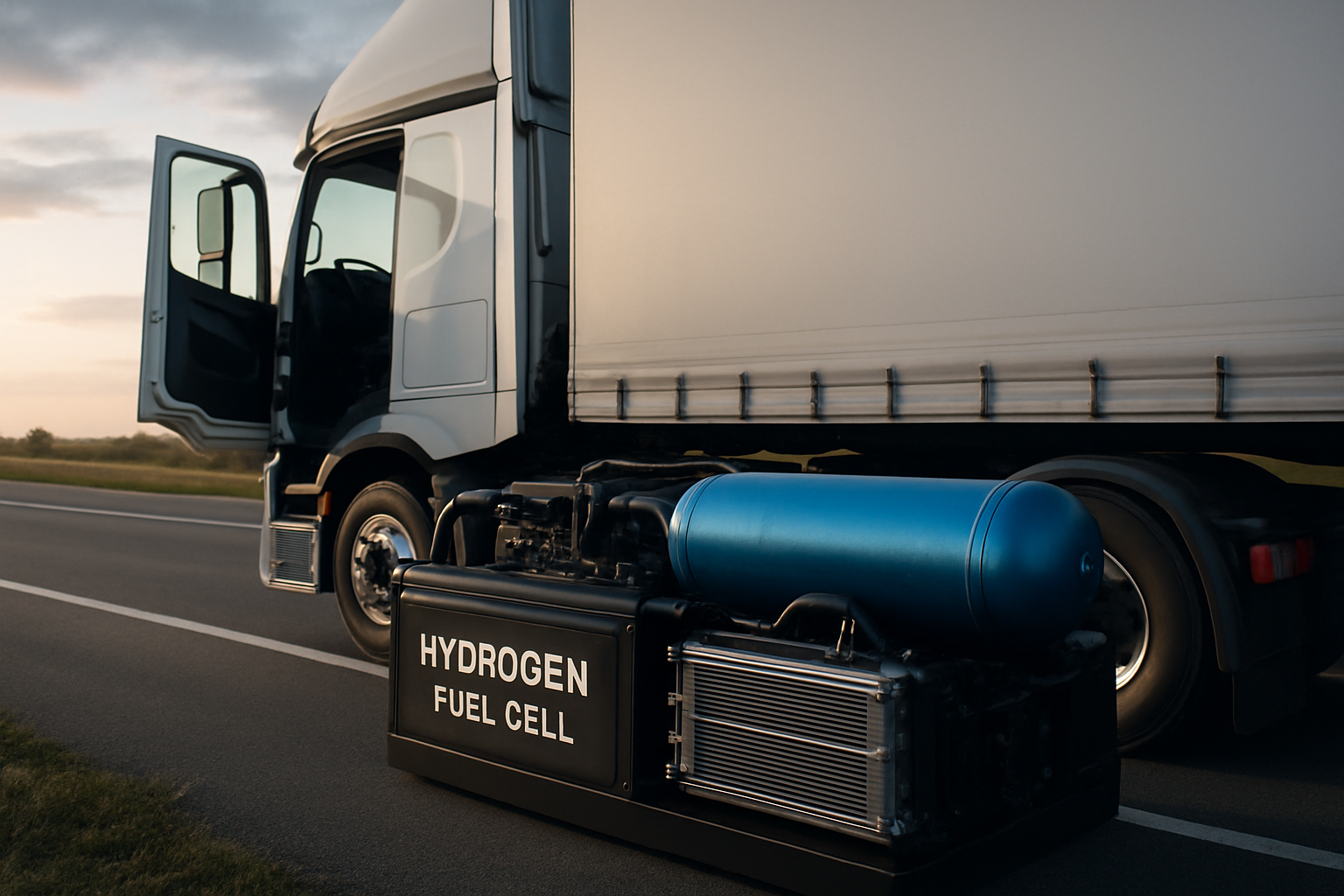Hydrogen Fuel Cells: The Quiet Revolution in Commercial Trucking
Imagine a world where long-haul trucks glide silently down highways, emitting nothing but water vapor. This isn't a far-off dream, but a rapidly approaching reality as hydrogen fuel cell technology gains traction in the commercial trucking industry. While much attention has been focused on passenger vehicles, the real game-changer for hydrogen power may be in the realm of heavy-duty transport. Let's dive into the world of hydrogen fuel cells and explore how they're reshaping the future of commercial trucking.

How Hydrogen Fuel Cells Work
At the heart of a hydrogen fuel cell is an electrochemical process that converts hydrogen and oxygen into electricity, with water as the only byproduct. The system consists of an anode, cathode, and electrolyte membrane. Hydrogen is fed into the anode, where it’s split into protons and electrons. The protons pass through the membrane to the cathode, while the electrons are forced through an external circuit, generating electricity. At the cathode, the protons and electrons combine with oxygen from the air to form water.
Overcoming Infrastructure Challenges
One of the primary hurdles for hydrogen adoption has been the lack of refueling infrastructure. However, the trucking industry presents a unique opportunity to overcome this obstacle. Unlike passenger vehicles, commercial trucks often follow predictable routes, making it easier to strategically place hydrogen stations along major freight corridors. Several companies and government initiatives are already working to establish hydrogen highways, with plans for networks of refueling stations spanning across continents.
Environmental Impact and Sustainability
While hydrogen fuel cells produce zero tailpipe emissions, the environmental benefits depend largely on how the hydrogen is produced. Currently, most hydrogen is derived from natural gas through a process called steam methane reforming, which does generate carbon emissions. However, there’s a growing push towards green hydrogen, produced through electrolysis powered by renewable energy sources like wind and solar. As the production of green hydrogen scales up, the environmental advantages of fuel cell trucks will become even more pronounced.
Economic Considerations for Fleet Operators
The transition to hydrogen fuel cell trucks represents a significant investment for fleet operators. While the upfront costs of fuel cell vehicles are currently higher than their diesel counterparts, many analysts predict that total cost of ownership will become competitive in the near future. Factors such as lower fuel costs, reduced maintenance expenses, and potential government incentives are expected to drive adoption. Moreover, as more stringent emissions regulations come into effect, hydrogen-powered trucks may offer a cost-effective solution for meeting environmental standards.
Real-World Applications and Case Studies
Several major truck manufacturers have already begun testing and deploying hydrogen fuel cell trucks. For instance, Hyundai has been operating a fleet of fuel cell trucks in Switzerland since 2020, with plans to expand across Europe. In the United States, Toyota and Kenworth have partnered to develop fuel cell trucks for port operations in Los Angeles. These early adopters are providing valuable data on performance, reliability, and operational costs in real-world conditions.
The Role of Policy and Regulation
Government policies play a crucial role in accelerating the adoption of hydrogen fuel cell technology in the trucking industry. Many countries are implementing stricter emissions standards and offering incentives for zero-emission vehicles. For example, the European Union’s Green Deal includes ambitious targets for reducing transport emissions, creating a favorable environment for hydrogen-powered solutions. In the United States, California’s Advanced Clean Trucks regulation mandates increasing sales of zero-emission trucks, further driving interest in fuel cell technology.
Challenges and Future Developments
Despite the promising outlook, challenges remain for widespread adoption of hydrogen fuel cell trucks. These include further reducing the cost of fuel cells, improving the durability and longevity of components, and scaling up green hydrogen production. Ongoing research and development efforts are focused on addressing these issues, with innovations in materials science and manufacturing processes showing potential for significant advancements in the coming years.
A Hydrogen-Powered Future for Trucking
As the commercial trucking industry seeks to balance environmental responsibility with operational efficiency, hydrogen fuel cell technology emerges as a compelling solution. With its potential for long range, quick refueling, and zero emissions, hydrogen power could revolutionize the way goods are transported across the globe. While challenges remain, the momentum behind hydrogen fuel cells in the trucking sector suggests that we may soon see a significant shift in the landscape of commercial transportation. As infrastructure expands and technology advances, hydrogen-powered trucks may become a common sight on highways, ushering in a new era of clean, efficient long-haul transport.






